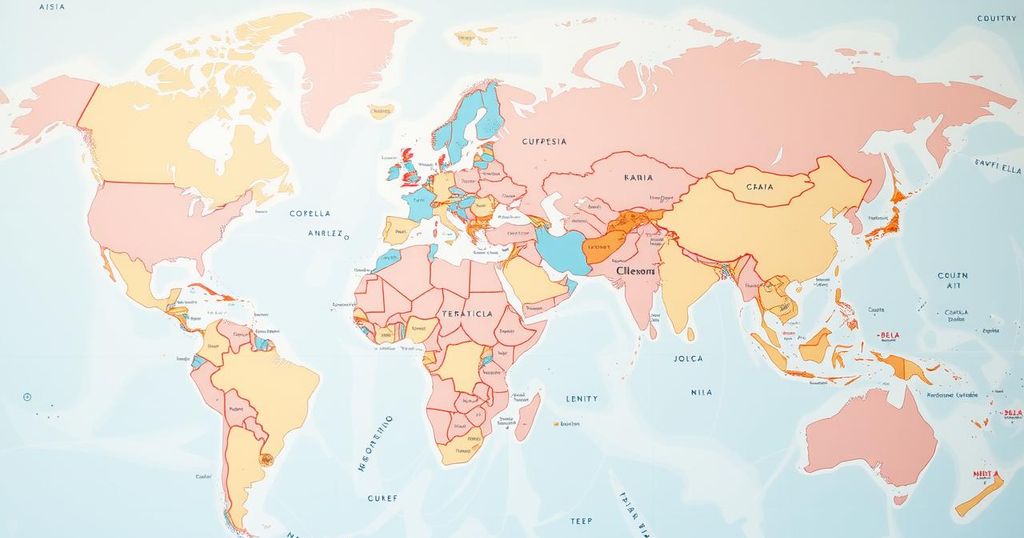The Trump administration is considering a travel ban affecting citizens from 43 countries, proposing “red” and “orange” lists for varying degrees of restrictions. The preparation of this list aims to enhance national security but raises questions regarding the implications for visa holders and international relations. The plan reflects ongoing tensions over immigration policy amid contrasting approaches from the current and previous administrations.
The Trump administration is preparing to impose a new travel ban targeting citizens from up to 43 countries, a move that could be broader than previous restrictions. According to officials, a draft proposal identifies 11 countries, referred to as the “red” list, whose citizens would be banned from entering the United States, including Afghanistan, Cuba, and North Korea.
In addition, an “orange” list has been proposed featuring 10 countries where travel would be restricted, allowing entry for affluent business travelers but denying tourist or immigrant visa holders. Those on this list include Belarus, Pakistan, and Russia, who would also face mandatory in-person visa interviews.
Mr. Trump had previously mandated the State Department to compile a list of countries with inadequate vetting procedures, with the report due soon. Agencies are currently assessing the accuracy of country assessments and potential policy implications, especially in light of geopolitical relationships.
The State Department maintains that it is committed to national security and public safety regarding visa processes, although specific comments on internal discussions remain undisclosed. Concerns arise regarding existing visas and green card holders as the new ban may introduce significant legal implications.
Some countries listed on the proposed ban, including Bhutan, appear to lack clear justification for inclusion, while others may disrupt delicate diplomatic relations, such as Venezuela. Furthermore, a draft “yellow” list consists of 22 countries that have 60 days to remedy perceived deficiencies or risk being moved to stricter lists.
Courts previously challenged Trump’s travel bans, but a revised version gained approval from the Supreme Court. In contrast, President Biden revoked these bans upon taking office, labeling them inconsistent with America’s welcoming legacy.
The Trump administration’s proposed travel ban revives significant restrictions on citizens from various countries, with a focus on enhancing national security. The plans include detailed classifications and stipulations surrounding visa processes, raising critical questions about existing visa holders and international relations. Given the previous legal challenges to similar measures, the efficacy and implementation of this travel ban remain uncertain.
Original Source: newsroom.gy






